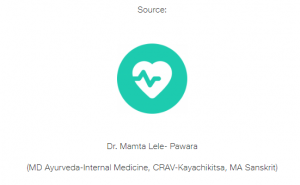[the_ad id=”6076″]
Caffeine, the world’s most widely consumed psychoactive substance, is found naturally in various foods and beverages. It’s renowned for its ability to boost alertness and energy, making it a go-to choice for many to kickstart their day. However, understanding its benefits, medicinal applications, and potential side effects is crucial for responsible consumption.
Benefits of Caffeine:
- Enhanced Alertness and Focus: Caffeine is a central nervous system stimulant that can improve mental alertness and concentration by blocking the action of adenosine, a neurotransmitter responsible for promoting sleepiness.
- Increased Physical Performance: Athletes often use caffeine to enhance endurance and reduce perceived exertion during workouts. It stimulates the release of adrenaline, aiding in improved physical performance.
- Boosts Metabolism: Caffeine can temporarily increase metabolic rate, assisting in burning more calories and aiding weight management.
- Reduced Risk of Certain Diseases: Some studies suggest that moderate caffeine intake might reduce the risk of diseases like Parkinson’s, Alzheimer’s, and certain types of cancers.
Medicinal Use:
Apart from its daily consumption in beverages like tea, coffee, and sodas, caffeine also finds application in medicinal settings:
- Pain Relief: Caffeine is an ingredient in some over-the-counter pain relievers, enhancing the effects of other medications in treating headaches and migraines.
- Respiratory Aid: Caffeine is sometimes used in neonatal care to stimulate breathing in premature infants.
- Improved Focus in ADHD: In some cases, caffeine might assist in improving focus and attention in individuals with Attention Deficit Hyperactivity Disorder (ADHD).
Caffeine Content Comparison:
When it comes to the caffeine content in different consumables:
- Coffee: A typical 240-milliliter (8-ounce) cup of brewed coffee contains around 95 milligrams of caffeine. However, this amount can vary widely based on factors like bean type, roast, and brewing method.
- Tea: A 240-milliliter (8-ounce) cup of brewed tea contains approximately 25-48 milligrams of caffeine, depending on the type of tea and brewing time.
- Chocolate: A 28-gram (1-ounce) square of dark chocolate contains roughly 12 milligrams of caffeine. Milk chocolate has a bit less, around 9 milligrams per 28-gram (1-ounce) square.
- Sodas: The caffeine content in sodas can vary significantly. A 355-milliliter (12-ounce) cola-type soda might contain anywhere from 20 to 50 milligrams of caffeine.
Side Effects of Caffeine:
While moderate caffeine consumption can offer benefits, excessive intake can lead to adverse effects:
- Insomnia and Disrupted Sleep: Consuming caffeine too late in the day can interfere with sleep patterns, leading to insomnia and reduced sleep quality.
- Increased Heart Rate and Anxiety: Higher doses of caffeine can cause rapid heart rate, jitters, and anxiety in sensitive individuals.
- Digestive Issues: Some people might experience stomach upset, acid reflux, or increased bowel movements due to excessive caffeine intake.
- Dependency and Withdrawal Symptoms: Regular consumption can lead to dependency, and sudden cessation might result in withdrawal symptoms like headaches, irritability, and fatigue.
Conclusion:
Caffeine, when consumed in moderation, offers several benefits, including increased alertness, improved focus, and potential health advantages. However, understanding its content in various sources and being mindful of its potential side effects is essential for maintaining a healthy balance in consumption. Enjoying your favourite caffeinated beverage or treat can be a delightful part of your day as long as it’s done responsibly.

